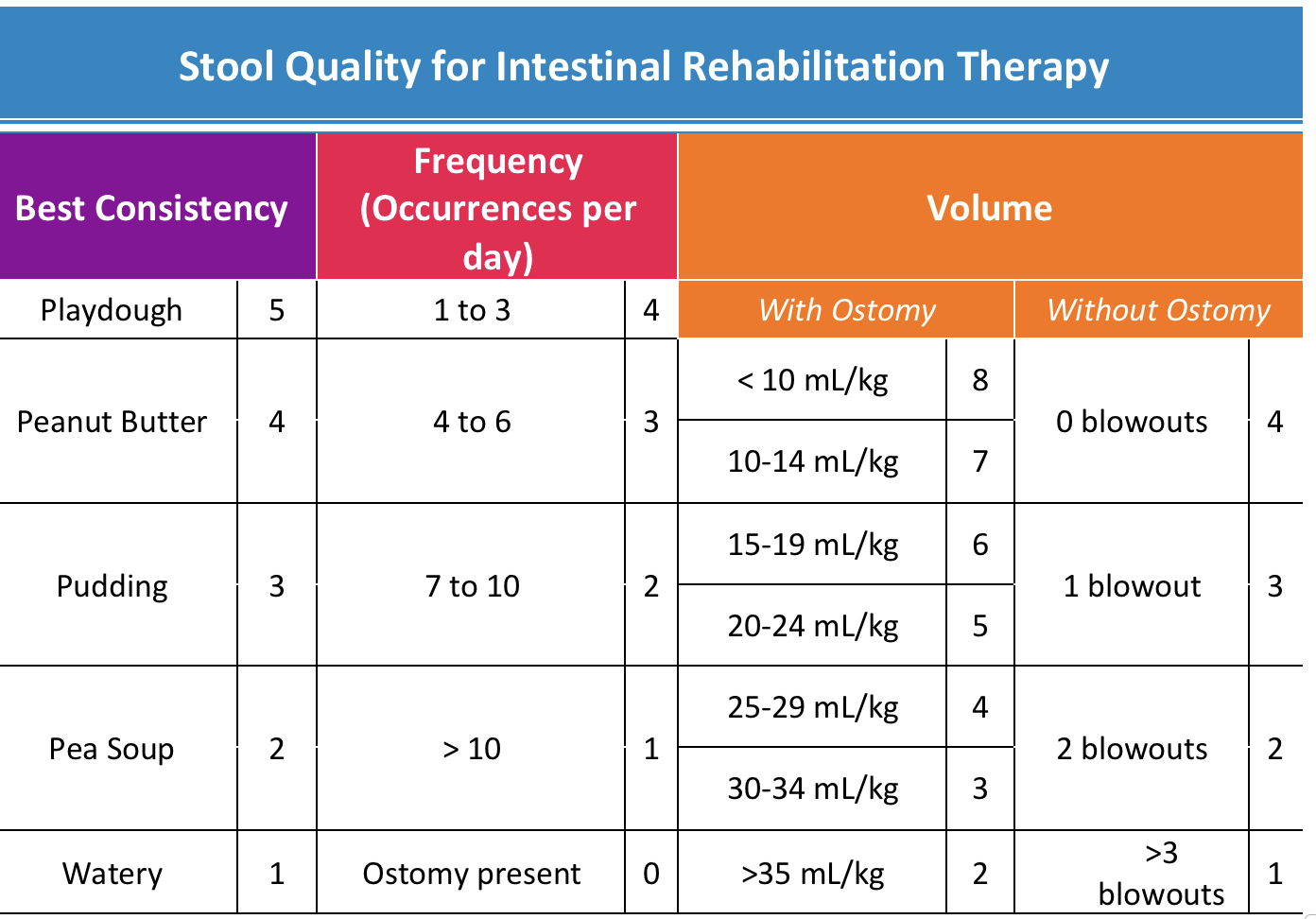STOOL QUALITY FOR INTESTINAL REHABILITATION THERAPY (SQUIRT) SCORE
Jessica Rauh*, M. Angie Almond, Michael S. Glock, Kristen A. Zeller
Surgery, Wake Forest Baptist Health Medical Center, Winston Salem, NC
Introduction: For patients with intestinal failure, weaning from parenteral nutrition (PN) hinges on enteral tolerance. Diarrhea is one manifestation of feeding intolerance, but we lack objective means to measure severity. A scoring system has been developed to assess the severity of diarrhea in intestinal failure patients. This will provide an objective measurement to assist in clinical management and clarify communications between providers, nursing staff, and parents.
Methods: A scoring system assessing three variables (stool consistency, frequency, and
volume) over a 24-hour period was developed (Table 1.) Each of the three variables were assigned a point value with the sum providing a total score ranging from three to thirteen. To validate this new scoring system, scores were tabulated from retrospective chart review of patients selected from a single-center multi-disciplinary pediatric intestinal failure registry. Daily scores were calculated during their inpatient stay and as well as during outpatient encounters when seen for intestinal failure follow-up. Changes in clinical management were evaluated in relation to changes in SQUIRT scores.
Results: Patient scores were charted longitudinally, noting the timing of interventions such as operative interventions and nutritional modifications. Clinical interventions were often followed by a correlating SQUIRT score. Tabulating scores from documentation was simple to perform.
Conclusion: This comprehensive scoring system provides an objective tool with which to assess stool output in a challenging patient population. It creates a common language to improve communication amongst clinicians, patients, and caregivers about a nuanced clinical outcome which is frequently used to drive medical management. It has particular utility in patients with short bowel syndrome but may also be useful for other patient populations with chronic diarrhea.
Back to 2022 Posters
